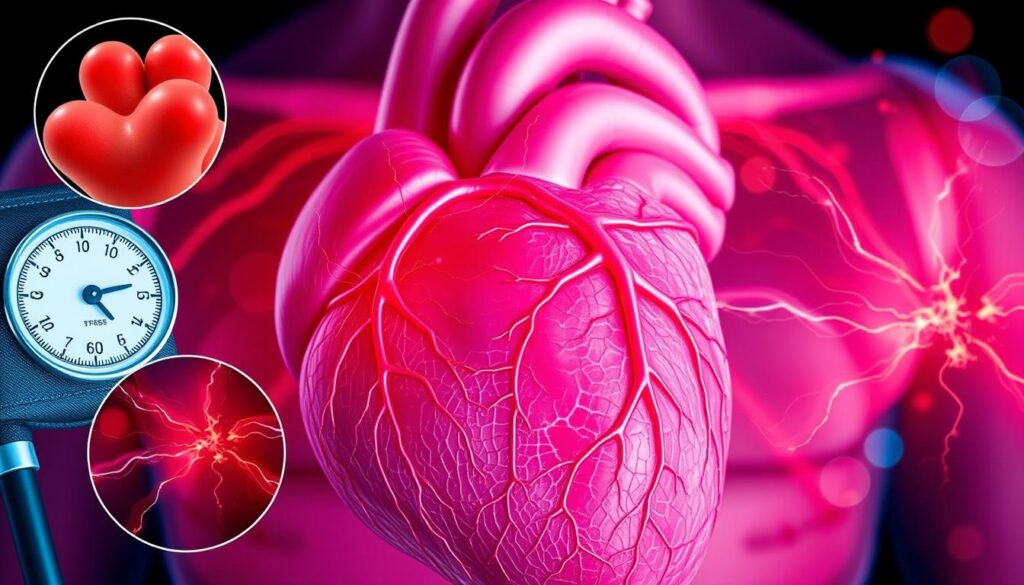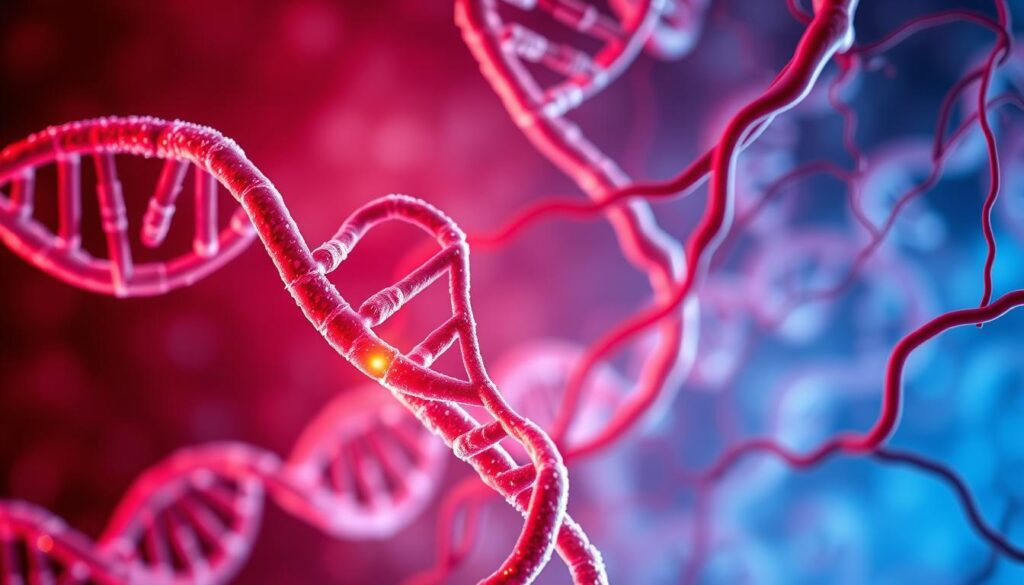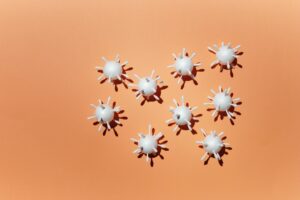Understanding High Blood Pressure: What to Know
Discover essential tips for managing high blood pressure and leading a healthier lifestyle. Learn about natural remedies and treatment options here.

High blood pressure, also known as hypertension, is a common health issue. It happens when your blood pressure in your arteries is too high. This can be a big risk to your heart health. If not managed, it could lead to serious problems like heart disease and stroke.
To understand high blood pressure, start by knowing its role in keeping your heart healthy. Learn what hypertension is, its signs, and risk factors. This knowledge helps you take steps for better health. We’ll give you key facts about high blood pressure and its impact on your health.
Key Takeaways
- High blood pressure, or hypertension, is a common condition with serious health risks.
- Recognizing the signs and symptoms of hypertension is crucial for early intervention.
- Understanding the risk factors helps in preventing high blood pressure.
- Maintaining a healthy heart is achievable with the right knowledge and actions.
- Regular monitoring of your blood pressure can help manage and control hypertension.
What is High Blood Pressure?
High blood pressure, also known as hypertension, is when the blood’s force against artery walls is too strong. The American Heart Association says high blood pressure is over 130/80 mmHg. This means your heart is working too hard.
Understanding the Basics
It’s key to understand blood pressure basics. Blood pressure has two numbers: systolic and diastolic. The top number, systolic, is the pressure when your heart beats. The bottom number, diastolic, is the pressure when it rests.
High readings mean your arteries are under strain.
Signs and Symptoms
Hypertension is often called the “silent killer” because many don’t show symptoms. But, some may have headaches, shortness of breath, or nosebleeds. If you see these signs, you should act fast with high blood pressure remedies.
| Indicator | Normal | High Blood Pressure |
|---|---|---|
| Systolic Pressure | Less than 120 mmHg | 130 mmHg or higher |
| Diastolic Pressure | Less than 80 mmHg | 80 mmHg or higher |
Causes of High Blood Pressure
High blood pressure, also known as hypertension, comes from many causes. It’s key to know what affects your risk. Both your genes and lifestyle play big roles in this.
Genetic Factors
Having a family history of high blood pressure is a big genetic reason for it. If your parents or relatives had it, you might get it too. This means some people face a higher risk, even with healthy habits.

Lifestyle Factors
Changing your lifestyle can help with high blood pressure. Bad eating habits, not moving enough, and smoking are big culprits. Eating better, staying active, and quitting smoking can lower your risk a lot.
Medical Conditions
Some health issues raise your chance of high blood pressure. Kidney disease, diabetes, and sleep apnea are examples. Handling these conditions well is part of managing your blood pressure.
High Blood Pressure Management Techniques
Managing high blood pressure is key to good heart health and avoiding serious issues. There are many ways to manage hypertension, from doctor-prescribed treatments to making lifestyle changes. By using a mix of these options, you can better control your blood pressure.
Medications and Treatments
Doctors often prescribe different types of medications to lower high blood pressure. Diuretics, ACE inhibitors, and beta-blockers are common choices. These drugs help your blood vessels relax or remove extra fluid from your body, making it easier for your heart to pump blood.
Dietary Changes
Changing what you eat is a big part of managing high blood pressure. Cutting down on sodium is a key step. Also, eating foods from the DASH diet can help lower your blood pressure. This diet focuses on fruits, veggies, whole grains, and lean proteins.
| Type of Food | Recommended Intake |
|---|---|
| Fruits and Vegetables | 8-10 servings per day |
| Whole Grains | 6-8 servings per day |
| Lean Proteins | 2 or fewer servings per day |
| Dairy | 2-3 servings per day |

Regular Exercise
Adding regular exercise to your day can help control high blood pressure. Activities like walking, running, and swimming are good for your heart. Also, strength training can help. Try to do at least 150 minutes of moderate exercise each week for the best results.
Stress Management
Managing stress is important for lowering high blood pressure. Try meditation, deep breathing, or yoga to help. These methods can make you feel better and improve your blood pressure control. Adding them to your daily life can boost your overall health.
Natural Remedies to Lower Blood Pressure
Looking into natural ways to control blood pressure can be a good choice. Adding foods like garlic, omega-3 fatty acids, and Coenzyme Q10 to your meals can help. These foods are good for the heart and can lower blood pressure.
Herbs like hawthorn, cardamon, and celery seed can also be helpful. They’re used to ease high blood pressure. These herbs boost antioxidants and help blood flow better.
Making lifestyle changes is key to managing blood pressure naturally. Eating foods high in potassium, drinking plenty of water, and cutting down on caffeine are good steps. Foods like bananas, sweet potatoes, and spinach are full of potassium. They help balance sodium levels and relax blood vessel walls.
| Natural Ingredient | Potential Benefits |
|---|---|
| Garlic | Improves blood circulation |
| Omega-3 Fatty Acids | Reduces inflammation and lowers blood pressure |
| Coenzyme Q10 | Supports heart health |
| Hawthorn | Antioxidant properties, improves heart function |
| Cardamon | Helps reduce blood pressure |
| Celery Seed | Promotes healthy blood pressure levels |
Conclusion
High blood pressure, or hypertension, is a big health issue that needs careful attention. It’s important to know the basics, find out what causes it, and use the right treatments. This can be medical or natural.
Knowing about genetic and lifestyle factors helps you make better health choices. Making changes like eating healthier and exercising regularly can really help lower your blood pressure. These changes are good for your heart and overall health.
Natural remedies are also good for managing high blood pressure. Things like managing stress and changing your diet can keep your blood pressure in check. By being proactive and informed, you can lower the risks of hypertension. This leads to a healthier and more balanced life.
Now, with lots of information available, managing high blood pressure is easier. Use these healthy heart tips and take charge of your health. Doing this means you can look forward to a future with fewer health risks and a better quality of life.




